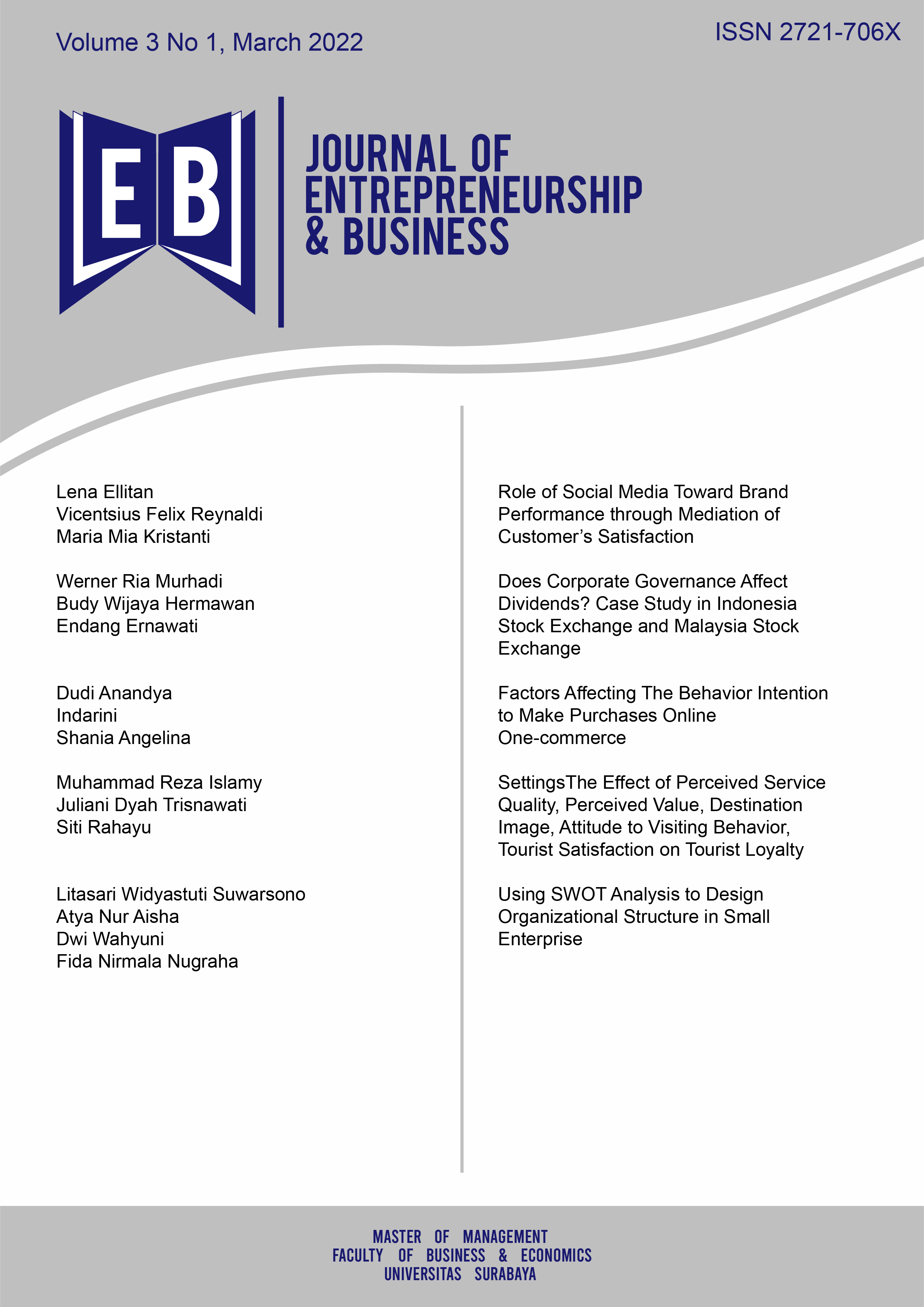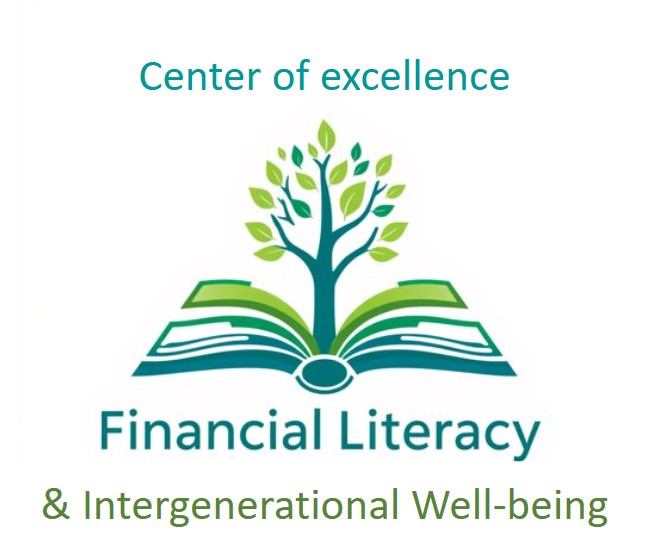Role of Social Media toward Brand Performance through Mediation of Customer's Satisfaction
 Abstract Views:
773 times
Abstract Views:
773 times
 PDF Downloads:
461 times
PDF Downloads:
461 times
Abstract
A B S T R A C T
This study aims to examine the effect of social media communication, interaction, and motivation toward BBQ Frenzy Brand Performance with the mediating role of customer’s satisfaction and moderating role perceived service quality and trust during COVID-19 Pandemic. To achieve the purpose of the study, the study uses quantitative methods and collecting data in the form of online questionnaire using Google forms from 150 responses of selected group of people which are 18 years old or older, had an Instagram Account, had seen the advertisement about BBQ Frenzy, had visited BBQ Frenzy, and lived in Surabaya, Indonesia during this covid-19 pandemic. The data then analyzed using PLS-SEM in SMART PLS 3.3.3 to test the hypothesis of the study. The result shows that for direct effect social media communication, interaction, and motivation all have a positive and significant effect on the BBQ Frenzy customer’s satisfaction, customer’s satisfaction also shown to have a very strong positive and significant effect on brand performance. As for mediating (indirect) effect it was shown that customer’s satisfaction has a positive and significant effect in mediating social media communication, interaction, and motivation toward BBQ Frenzy brand performance.
Downloads
References
Agnihotri, R., Dingus, R., Hu, M. Y., & Krush, M. T. (2016). Social media: Influencing customer satisfaction in B2B sales. Industrial Marketing Management, 53, 172–180.
Bazi, S., Filieri, R., & Gorton, M. (2020). Customers’ motivation to engage with luxury brands on social media. Journal of Business Research, 112, 223–235.
Chaudhary, M. A., Chaudhary, N. I., & Ali, A. Z. (2020). Enhancing university’s brand performance during the COVID-19 outbreak: The role of ICT orientation, perceived service quality, trust, and student’s satisfaction. Pakistan Journal of Commerce and Social Sciences (PJCSS), 14(3), 629–651.
Chirani, E., Taleghani, M., & Moghadam, N. E. (2012). Brand performance and brand equity. Interdisciplinary Journal of Contemporary Research in Business, 3(9), 1033–1036.
Copypress. (2013). The Power of Social Media Interaction. Retrieved from Copypress.com website: https://www.copypress.com/blog/the-power-of-social-media-interaction/
Desai, V. (2019). Digital marketing: A review. International Journal of Trend in Scientific Research and Development, 5(5), 196–200.
Ghozali, I., & Lathan, H. (2015). Partial least squares: Konsep, teknik, dan aplikasi menggunakan program smart PLS 3.0 (2nd ed.). Semarang: BP Undip.
Hoffman, L. (2018). Three Ways Effective Communication Improves Customer Satisfaction. Retrieved from mojomedialabs.com website: https://www.mojomedialabs.com/blog/effective-communication-strategies
Jhandir, S. U. (2012). Customer satisfaction, perceived service quality and mediating role of perceived value. International Journal of Marketing Studies, 4(1), 68–78.
Leane. (2014). Why Is Social Media Communication Important? Retrieved from socialmediaspecialist.com.au. website: http://www.socialmediaspecialist.com.au/why-is-social-media-communication-important/
Montgomery, E. T. (2018). The Importance of Interacting on Social Media. Retrieved from https://www.business2community.com/ website: https://www.business2community.com/social-media/the-importance-of-interacting-on-social-media-02128088
Soewandi, M. (2015). The impact of social media communication forms on brand equity dimensions and consumer purchase intention. IBuss Management, 3(2), 204–213.
SolveoCo. (2019). Social Media vs. other Digital Marketing: Which should you focus on? Retrieved from solveoco.medium.com website: https://solveoco.medium.com/social-media-vs-other-digital-marketing-which-should-you-focus-on-8ecd289769c4
Torres, A., & Tribó, J. A. (2011). Customer satisfaction and brand equity. Journal of Business Research, 64(10), 1089–1096.
Zoubi, F. H., & Al-Harazneh, D. M. (2021). The impact of social media on customers’ loyalty toward hotels in Jordan. International Journal of Business and Management, 14(5), 123.

This work is licensed under a Creative Commons Attribution 4.0 International License.
Articles published in Journal of Entrepreneurship & Business are licensed under a Creative Commons Attribution 4.0 International (CC BY) license. You are free to copy, transform, or redistribute articles for any lawful purpose in any medium, provided you give appropriate credit to the original author(s) and the journal, link to the license, and indicate if changes were made.
Authors submitting to this journal agree to make their work freely available under the CC BY 4.0 license, ensuring broad dissemination and reuse. The full license details can be accessed at https://creativecommons.org/licenses/by/4.0/.
This ensures that they receive the maximum dissemination because there are no barriers to access. This license allows readers to disseminate and reuse the paper, but always requires them to grant the authors and the first publication full credit.
While JEB upholds ethical publishing standards, the responsibility for ensuring originality and compliance with copyright regulations lies with the authors. The journal is not liable for any legal claims related to the content of published articles.
For further inquiries, please contact the editorial team.

 DOI:
DOI:











